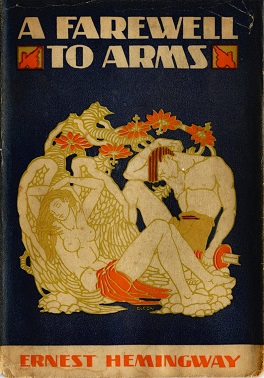
A Farewell to Arms is a novel by American writer Ernest Hemingway, set during the Italian campaign of World War I. First published in 1929, it is a first-person account of an American, Frederic Henry, serving as a lieutenant in the ambulance corps of the Italian Army. The novel describes a love affair between the American expatriate and an English nurse, Catherine Barkley.
William Theodore Kotcheff is a Bulgarian and Canadian film and television director, writer and producer, known primarily for his work on British and American television productions, such as Armchair Theatre and Law & Order: Special Victims Unit. He directed numerous successful films including the Australian Wake in Fright (1971), action films such as the original Rambo movie First Blood (1982) and Uncommon Valor (1983), and comedies like Fun with Dick and Jane (1977), North Dallas Forty (1979), and Weekend at Bernie's (1989).
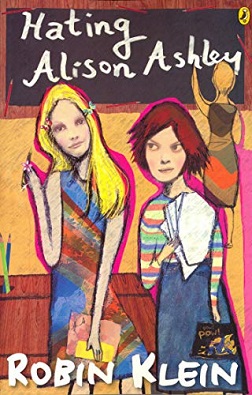
Hating Alison Ashley is a 1984 Australian novel. Written by science fiction and children's author Robin Klein. Written as a preteen comedy, the book has a strong moral undercurrent about the pursuit of happiness and perfection, the pressures of growing up and the power of friendship. It portrays the agonies of school-girl rivalries, constant embarrassment by family, and painful and often brutally funny awkwardness and insecurity. One of Klein's most popular preteen novels, it has since become a standard English text for school students across Australia.
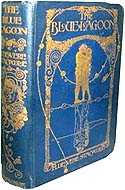
The Blue Lagoon is a coming-of-age romance novel written by Henry De Vere Stacpoole, first published by T. Fisher Unwin in 1908. The Blue Lagoon explores themes of love, childhood innocence, and the conflict between civilisation and the natural world. The book immerses the reader in a captivating and haunting setting through Stacpoole's vivid depictions of the island and its untamed splendour.
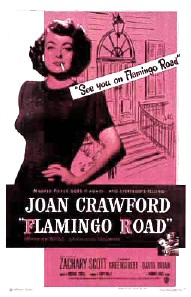
Flamingo Road is a 1949 American film noir drama directed by Michael Curtiz and starring Joan Crawford, Zachary Scott, Sydney Greenstreet and David Brian. The screenplay by Robert Wilder was based on a 1946 play written by Wilder and his wife, Sally, which was based on Robert Wilder's 1942 novel of the same name.
Kenneth Bernard Cook was an Australian journalist, television documentary maker, and novelist best known for his works Wake in Fright, which is still in print five decades after its first publication, and the humorous Killer Koala trilogy.
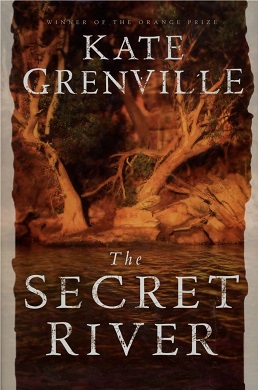
The Secret River is a 2005 historical novel by Kate Grenville about an early 19th-century Englishman transported to Australia for theft. The story explores what might have happened when Europeans colonised land already inhabited by Aboriginal people. The book has been compared to Thomas Keneally's The Chant of Jimmie Blacksmith and to Peter Carey's True History of the Kelly Gang for its style and historical theme.
Moby-Dick is an 1851 novel by Herman Melville that describes the voyage of the whaleship Pequod, led by Captain Ahab, who leads his crew on a hunt for the whale Moby Dick. There have been a number of adaptations of Moby-Dick in various media.
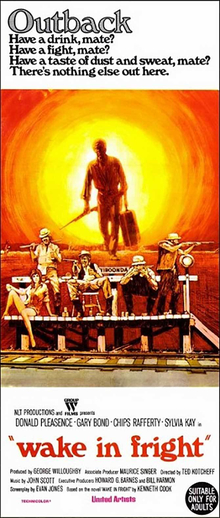
Wake in Fright is a 1971 Australian New Wave film directed by Ted Kotcheff, written by Evan Jones, and starring Gary Bond, Donald Pleasence, Chips Rafferty, Sylvia Kay and Jack Thompson. Based on Kenneth Cook's 1961 novel of the same name, it follows a young schoolteacher who descends into personal moral degradation after finding himself stranded in a brutal, menacing town in outback Australia.

Robbery Under Arms is a bushranger novel by Thomas Alexander Browne, published under his pen name Rolf Boldrewood. It was first published in serialised form by The Sydney Mail between July 1882 and August 1883, then in three volumes in London in 1888. It was abridged into a single volume in 1889 as part of Macmillan's one-volume Colonial Library series and has not been out of print since.

Les Chouans is an 1829 novel by French novelist and playwright Honoré de Balzac (1799–1850) and included in the Scènes de la vie militaire section of his novel sequence La Comédie humaine. Set in the French region of Brittany, the novel combines military history with a love story between the aristocratic Marie de Verneuil and the Chouan royalist Alphonse de Montauran. It takes place during the 1799 post-war uprising in Fougères.

Gary James Bond was an English actor and singer. He is known for originating the role of Joseph in Tim Rice and Andrew Lloyd Webber's musical Joseph and the Amazing Technicolor Dreamcoat, his performances in several high-profile West End plays and musicals, and his portrayal of protagonist John Grant in the Australian film Wake in Fright (1971).

"Marlene" is the first single from British artist Lightspeed Champion's second album Life is Sweet! Nice to Meet You, released on 25 January 2010.
Gabriel Andrews is an Australian television, film and stage actor. He is best known for the hundreds of roles he played on the popular sketch comedy TV show Comedy Inc.
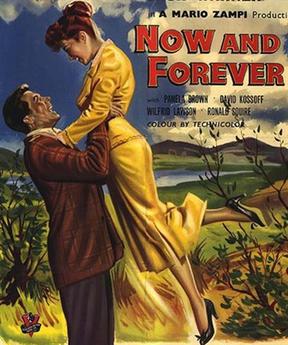
Now and Forever is a 1956 British drama film directed by Mario Zampi and starring Janette Scott, Vernon Gray and Kay Walsh. It is based on the play The Orchard Walls by R.F. Delderfield, and was Scott's first adult role after a career as a child star in Britain. The screenplay concerns an upper-class girl who becomes romantically involved with a garage mechanic, and they head for Gretna Green to elope.
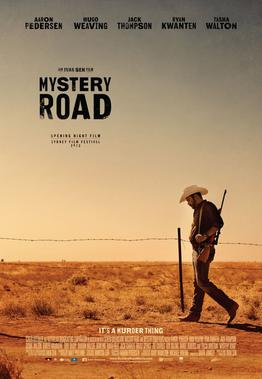
Mystery Road is a 2013 Australian crime film with neo-Western elements and setting, written and directed by Ivan Sen. It was screened in the Special Presentation section at the 2013 Toronto International Film Festival. A film sequel entitled Goldstone was released in 2016, and TV series in 2018, all featuring Aaron Pedersen as the brooding Indigenous Australian detective Jay Swan.

The Refuge (1954) is the final novel by Australian author Kenneth Mackenzie.

Wake in Fright is an Australian miniseries based on Kenneth Cook's 1961 novel of the same name, which first aired on Network Ten in October 2017. Directed by Kriv Stenders and written by Stephen M. Irwin, the series features an ensemble cast that includes Sean Keenan, Alex Dimitriades, Caren Pistorius, David Wenham, Anna Samson, Gary Sweet, and Robyn Malcolm.

The 2018 Speed Energy Stadium Super Trucks Series was the sixth season of the Stadium Super Trucks series. The season consisted of 20 races; it began on January 27, 2018 at Lake Elsinore Diamond and concluded on January 20, 2019 at Foro Sol in conjunction with the 2019 Race of Champions.
Simpkin & Marshall was a British bookseller, book wholesaler and book publisher. The firm was founded in 1819 and traded until the 1940s. For many decades the firm was Britain's largest book wholesaler and a respected family-owned company, but it was acquired by the media proprietor Robert Maxwell and went bankrupt in 1954, an event which, according to Lionel Leventhal, "sounded a warning to the book trade about Captain Robert Maxwell's way of doing business".















